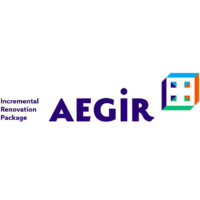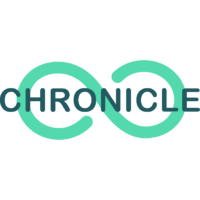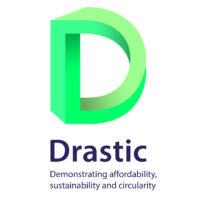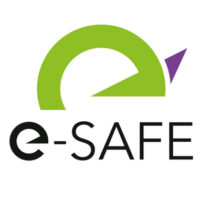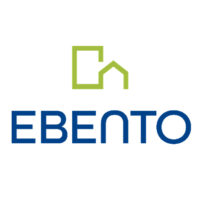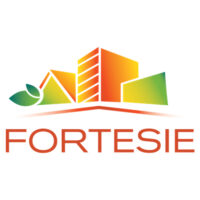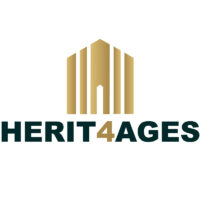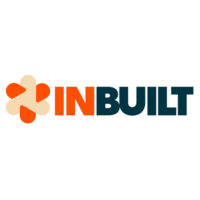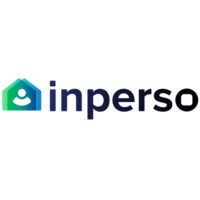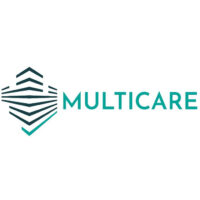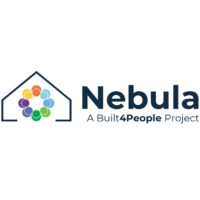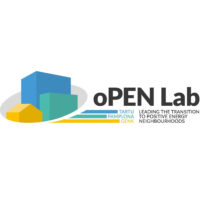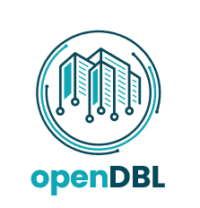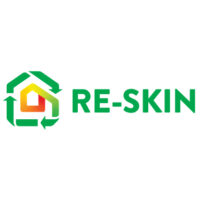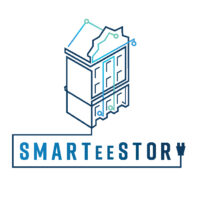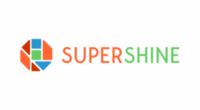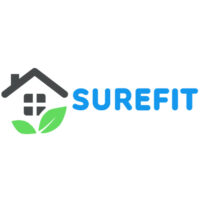The Network of building renovation projects has been initiated at the beginning of 2024 with the aim to collaborate and to use any synergies in reaching out to stakeholders of the construction sector and applied sciences. At this stage the network consists of 18 projects funded under Horizon Europe and many of them are part theBuilt4People Partnership.


DigitAl and physical incrEmental renovation packaGes/systems enhancing envIronmental and energetic behaviour and use of Resources
AEGIR’s main objective is to demonstrate a scalable, industrialised, smart, non-intrusive, quick, and affordable four-packaged renovation solution to boost the take up of deep retrofitting achieving nearly zero energy buildings. AEGIR main objective is to demonstrate a physical and digital sustainable framework that boosts the take up of deep retrofitting achieving nearly zero energy buildings. This approach is supported by (i) innovative, industrialized, high performance and non-intrusive multifunctional plug-and-play envelope solutions to increase the use of locally deployed renewable technologies. These solutions can also be modulated depending on the requirements of the target buildings. (ii) A digital ecosystem of services to improve the whole construction workflow (from design, manufacturing, construction, and operation) reducing costs with a sustainable approach. And (iii) a socio-economic model providing financial schemes and business models at building scale.
To demonstrate these objectives the project will deploy all these solutions in four demos (Spain, France, Denmark, and Romania) mixing the retrofitting actions which will use the solutions in four different climates. The demos combine different building typologies (multi-family buildings, educational buildings, offices, and single-family buildings) to proof the concept in buildings and tenants with different requirements. One of the demos (Denmark) is social housing so the intention of the project is to demonstrate that these solutions are feasible for the more demanding public. A second demo is a public school to demonstrate the improved air quality and comfort provided by the solution to solve many of the air quality/ventilation problems in this type of buildings. The project involves all the actors from the construction and energy management value chain with local and international SMEs, large companies, public authorities. Local and international clusters are also included to verify the developments at European level.


DigitAl and physical incrEmental renovation packaGes/systems enhancing envIronmental and energetic behaviour and use of Resources
Project that aims to improve building performance in order to increase energy efficiency, comfort and well-being. CHRONICLE aims to deliver a holistic framework for assessing the life-cycle performance for different building variants. CHRONICLE project supports the sustainable design of new and existing construction projects by focusing on efficient renovation procedures and investment decision-making processes.


DigitAl and physical incrEmental renovation packaGes/systems enhancing envIronmental and energetic behaviour and use of Resources
AEGIR’s main objective is to demonstrate a scalable, industrialised, smart, non-intrusive, quick, and affordable four-packaged renovation solution to boost the take up of deep retrofitting achieving nearly zero energy buildings. AEGIR main objective is to demonstrate a physical and digital sustainable framework that boosts the take up of deep retrofitting achieving nearly zero energy buildings. This approach is supported by (i) innovative, industrialized, high performance and non-intrusive multifunctional plug-and-play envelope solutions to increase the use of locally deployed renewable technologies. These solutions can also be modulated depending on the requirements of the target buildings. (ii) A digital ecosystem of services to improve the whole construction workflow (from design, manufacturing, construction, and operation) reducing costs with a sustainable approach. And (iii) a socio-economic model providing financial schemes and business models at building scale.
To demonstrate these objectives the project will deploy all these solutions in four demos (Spain, France, Denmark, and Romania) mixing the retrofitting actions which will use the solutions in four different climates. The demos combine different building typologies (multi-family buildings, educational buildings, offices, and single-family buildings) to proof the concept in buildings and tenants with different requirements. One of the demos (Denmark) is social housing so the intention of the project is to demonstrate that these solutions are feasible for the more demanding public. A second demo is a public school to demonstrate the improved air quality and comfort provided by the solution to solve many of the air quality/ventilation problems in this type of buildings. The project involves all the actors from the construction and energy management value chain with local and international SMEs, large companies, public authorities. Local and international clusters are also included to verify the developments at European level.


DigitAl and physical incrEmental renovation packaGes/systems enhancing envIronmental and energetic behaviour and use of Resources
AEGIR’s main objective is to demonstrate a scalable, industrialised, smart, non-intrusive, quick, and affordable four-packaged renovation solution to boost the take up of deep retrofitting achieving nearly zero energy buildings. AEGIR main objective is to demonstrate a physical and digital sustainable framework that boosts the take up of deep retrofitting achieving nearly zero energy buildings. This approach is supported by (i) innovative, industrialized, high performance and non-intrusive multifunctional plug-and-play envelope solutions to increase the use of locally deployed renewable technologies. These solutions can also be modulated depending on the requirements of the target buildings. (ii) A digital ecosystem of services to improve the whole construction workflow (from design, manufacturing, construction, and operation) reducing costs with a sustainable approach. And (iii) a socio-economic model providing financial schemes and business models at building scale.
To demonstrate these objectives the project will deploy all these solutions in four demos (Spain, France, Denmark, and Romania) mixing the retrofitting actions which will use the solutions in four different climates. The demos combine different building typologies (multi-family buildings, educational buildings, offices, and single-family buildings) to proof the concept in buildings and tenants with different requirements. One of the demos (Denmark) is social housing so the intention of the project is to demonstrate that these solutions are feasible for the more demanding public. A second demo is a public school to demonstrate the improved air quality and comfort provided by the solution to solve many of the air quality/ventilation problems in this type of buildings. The project involves all the actors from the construction and energy management value chain with local and international SMEs, large companies, public authorities. Local and international clusters are also included to verify the developments at European level.


DigitAl and physical incrEmental renovation packaGes/systems enhancing envIronmental and energetic behaviour and use of Resources
AEGIR’s main objective is to demonstrate a scalable, industrialised, smart, non-intrusive, quick, and affordable four-packaged renovation solution to boost the take up of deep retrofitting achieving nearly zero energy buildings. AEGIR main objective is to demonstrate a physical and digital sustainable framework that boosts the take up of deep retrofitting achieving nearly zero energy buildings. This approach is supported by (i) innovative, industrialized, high performance and non-intrusive multifunctional plug-and-play envelope solutions to increase the use of locally deployed renewable technologies. These solutions can also be modulated depending on the requirements of the target buildings. (ii) A digital ecosystem of services to improve the whole construction workflow (from design, manufacturing, construction, and operation) reducing costs with a sustainable approach. And (iii) a socio-economic model providing financial schemes and business models at building scale.
To demonstrate these objectives the project will deploy all these solutions in four demos (Spain, France, Denmark, and Romania) mixing the retrofitting actions which will use the solutions in four different climates. The demos combine different building typologies (multi-family buildings, educational buildings, offices, and single-family buildings) to proof the concept in buildings and tenants with different requirements. One of the demos (Denmark) is social housing so the intention of the project is to demonstrate that these solutions are feasible for the more demanding public. A second demo is a public school to demonstrate the improved air quality and comfort provided by the solution to solve many of the air quality/ventilation problems in this type of buildings. The project involves all the actors from the construction and energy management value chain with local and international SMEs, large companies, public authorities. Local and international clusters are also included to verify the developments at European level.


DigitAl and physical incrEmental renovation packaGes/systems enhancing envIronmental and energetic behaviour and use of Resources
AEGIR’s main objective is to demonstrate a scalable, industrialised, smart, non-intrusive, quick, and affordable four-packaged renovation solution to boost the take up of deep retrofitting achieving nearly zero energy buildings. AEGIR main objective is to demonstrate a physical and digital sustainable framework that boosts the take up of deep retrofitting achieving nearly zero energy buildings. This approach is supported by (i) innovative, industrialized, high performance and non-intrusive multifunctional plug-and-play envelope solutions to increase the use of locally deployed renewable technologies. These solutions can also be modulated depending on the requirements of the target buildings. (ii) A digital ecosystem of services to improve the whole construction workflow (from design, manufacturing, construction, and operation) reducing costs with a sustainable approach. And (iii) a socio-economic model providing financial schemes and business models at building scale.
To demonstrate these objectives the project will deploy all these solutions in four demos (Spain, France, Denmark, and Romania) mixing the retrofitting actions which will use the solutions in four different climates. The demos combine different building typologies (multi-family buildings, educational buildings, offices, and single-family buildings) to proof the concept in buildings and tenants with different requirements. One of the demos (Denmark) is social housing so the intention of the project is to demonstrate that these solutions are feasible for the more demanding public. A second demo is a public school to demonstrate the improved air quality and comfort provided by the solution to solve many of the air quality/ventilation problems in this type of buildings. The project involves all the actors from the construction and energy management value chain with local and international SMEs, large companies, public authorities. Local and international clusters are also included to verify the developments at European level.

